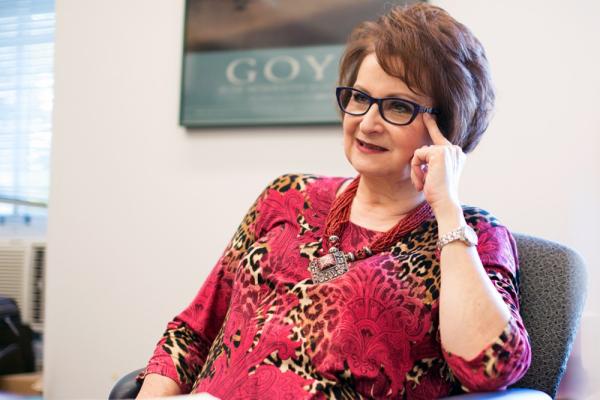
Part of our symposium for Cervantes' quadricentenary, this talk examines the apparition of the Mediterranean throughout Cervantes’s works, focusing in particular on Don Quijote (1605, 1615). For Cervantes, the internal sea represented the brutal scenario of war against the Turks and the even more disturbing setting of his Algerian captivity, which left an indelible mark in his work. No other writer of the period was able to represent the Mediterranean in his fiction like Cervantes. The “Great Sea” insistently returns to his literary production. Seascapes, maritime adventures, tempests, naval battles, and encounters with Islam and its peoples became for the writer subjects of infinite esthetic recreation.
The talk will begin with The Captive’s Tale, interpolated in the first part of Don Quijote (I, 38-41), which provides a window through which the novel examines the wars between the Spanish and Ottoman Empires, with their reverberations in the Mediterranean and its shores. As a counterpart to the previous tale, the episode of Ricote and its coda, the story of his daughter Ana Félix in the second part of the novel (DQ II, 54, 63 & 65) also emerge by way of the Mediterranean. Symmetrically included in the two parts of Don Quijote, both narratives reveal their aperture to the internal sea, a sizzling melting pot of religions, peoples, and languages. Moreover, both novellas evoke authentic historical events: first, the Battle of Lepanto (1571) and Cervantes’s captivity in Algiers (1575-1580); second, the expulsion of the Moriscos decreed by Philip II in 1609. Beyond the political and religious conflicts played out at the Mediterranean frontiers, Cervantes suggests that these borders were also spaces of cultural encounters. At sea in the Mediterranean, Cervantes’s characters not only represent diverse encounters with Islam: they also embrace cultural difference and questions of human solidarity.
Bio: MARÍA ANTONIA GARCÉS is Professor of Hispanic Studies at Cornell University. A specialist in Cervantes and early modern Spanish literatures and cultures, her research interests focus on the encounters between the Cross and the Crescent in the sixteenth and seventeenth-century Mediterranean. In 2003, Professor Garcés was awarded the James Russell Lowell Prize of the Modern Language Association of America (MLA) for her book Cervantes in Algiers: A Captive’s Tale (Vanderbilt UP, 2002; rev. ed. 2005), a study of Cervantes’s Algerian captivity (1575-1580) and its effects on his fiction. Her own revised and expanded translation of this book was published in Spain: Cervantes en Argel: historia de un cautivo (Gredos, 2005). Her archival research has produced another major project on the socio-political world of Algiers, with Professor Diana Wilson (translator): An Early Modern Dialogue with Islam: Antonio de Sosa’s Topography of Algiers (1612) (U. of Notre Dame P, 2011). Her current work-in-process brings together the Mediterranean and Cervantes.
